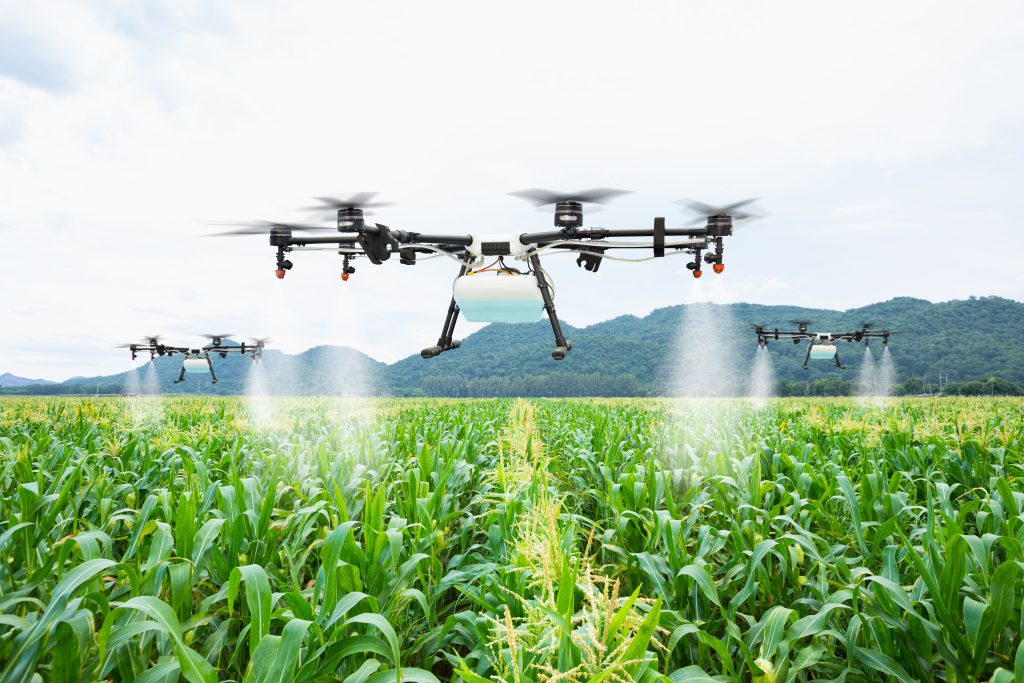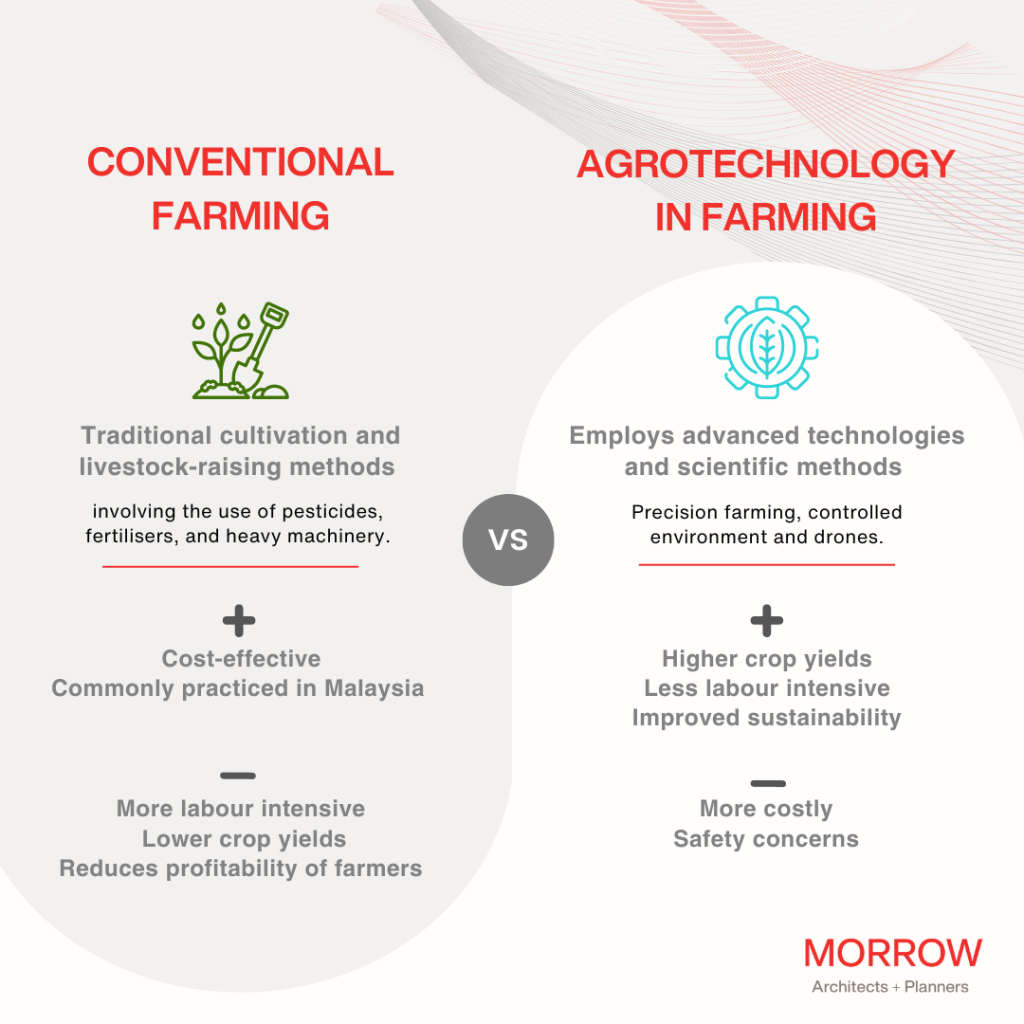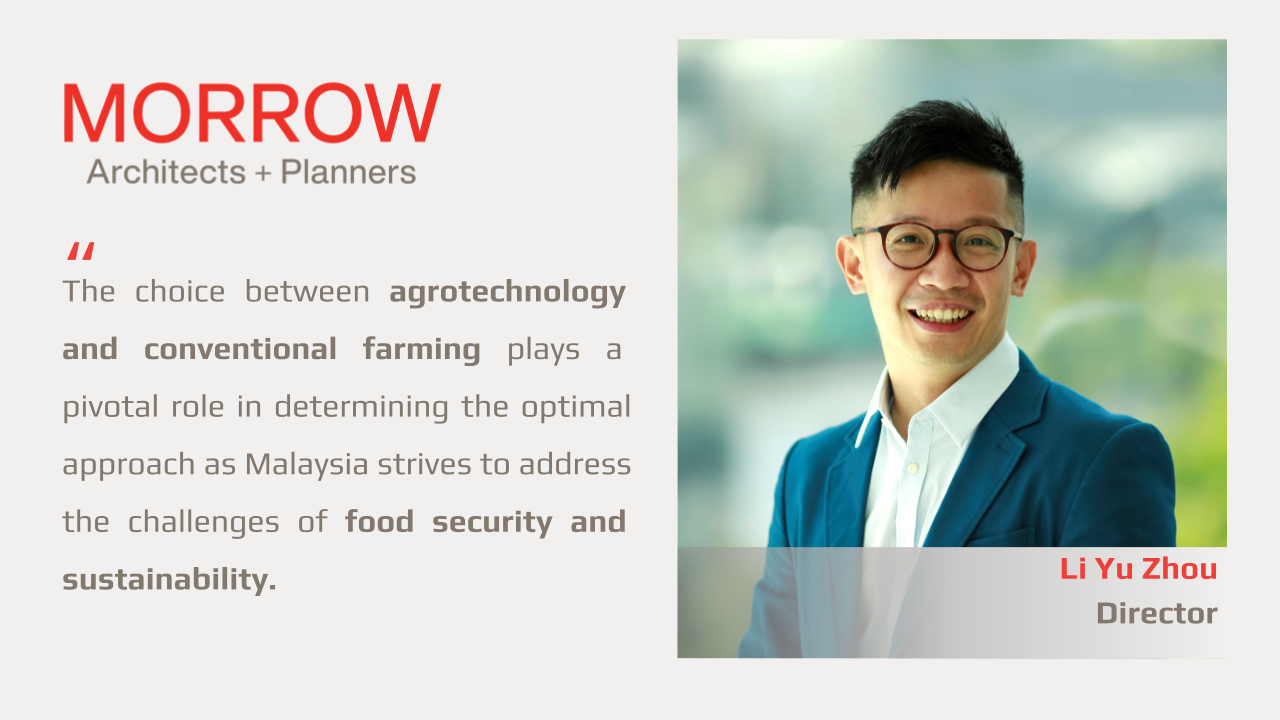As Malaysia strives to address the challenges of food security and sustainability, the country faces critical decisions in its agricultural practices. The choice between agrotechnology and conventional farming plays a pivotal role in determining the optimal approach to meet these objectives. Factors such as environmental conditions, resource availability, and economic considerations influence this decision-making process.

To address food security concerns and promote sustainable farming practices, Malaysia has witnessed an increased emphasis on agrotechnology and high-density farming, supported by government initiatives. An example is the Malaysian Agriculture Research and Development Institute (MARDI), which endeavours to develop and disseminate innovative technologies for the agriculture sector.
Agrotechnology and Conventional Farming
Both agrotechnology and conventional farming possess their respective advantages and disadvantages.

Conventional farming encompasses traditional cultivation and livestock-raising methods involving the use of pesticides, fertilisers, and heavy machinery. While it is cost-effective and commonly practised in Malaysia, this method has drawbacks. Overuse of pesticides and fertilisers can harm the environment and contaminate water sources, while heavy machinery usage may damage soil structure and fertility. Furthermore, conventional farming often requires intensive labour, and hence incurs high labour costs and results in lower yields, impacting the profitability of small-scale farmers.
In contrast, agrotechnology employs advanced technologies and scientific methods to enhance agricultural practices. Precision farming, controlled environment, and the utilisation of drones and other cutting-edge equipment fall under the umbrella of agrotechnology, which incurs higher capital cost. This approach has the potential to increase crop yields, reduce the labour intensity which lowers labour costs, and improve environmental sustainability.
The Dichotomy of Implementing Agrotechnology in Malaysia
In Malaysia, the adoption of agrotechnology has witnessed a steady increase, supported by initiatives like MARDI, which encourages the use of advanced farming technologies. However, agrotechnology also presents challenges. Implementation can be costly, necessitating specialised training for farmers. Concerns may also arise regarding the safety and environmental impact of genetically modified crops.
As such, the choice between agrotechnology and conventional farming in Malaysia is a complex decision influenced by several factors, including environmental conditions, resource availability, and economic considerations. Determining the optimal approach between agrotechnology and conventional farming hinges on the specific context of the farming operation.
For Malaysia, a combined approach that utilises both methods may offer the most advantageous outcome. Small-scale farmers can employ conventional methods for cost-effective production, while larger-scale commercial farms can harness agrotechnology to improve yields and sustainability. Agrotechnology can be used in indoor environments, hence creating opportunities for urban farming instead of the conventional farming in rural areas. It is crucial to consider the social, environmental, and economic impacts of each approach, ensuring long-term sustainability in farming practices.
Improving Food Resilience Against Flooding
To enhance Malaysia’s food resilience in the face of flooding, several factors can be considered:
- Controlled environments such as greenhouses and hydroponics farms provide a means to mitigate the effects of flooding on crops.
- Water management utilising agrotechnology can help optimise irrigation and drainage systems, minimising flood-related damages.
- High-density farming techniques like vertical farming maximise land utilisation and productivity, reducing vulnerability to flooding.
- Agrotechnology-based crop protection measures can safeguard crops from flood-related diseases and pests.
- Diversifying the range of available crops enhances resilience, ensuring a diversified and reliable food supply in the event of crop loss due to flooding.

By incorporating these strategies, Malaysia can bolster its food resilience, mitigate the impact of flooding on agricultural productivity, and ensure a sustainable and secure food system.
More about the author (Mr Li Yu Zhou) here, and our other MORROW Insights articles here.


